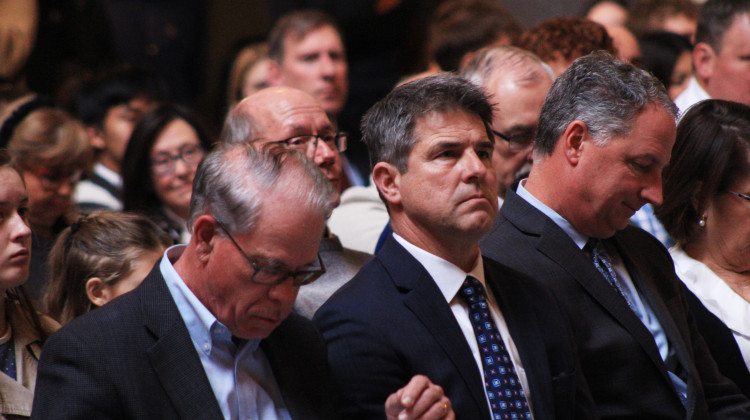INDIANAPOLIS (AP) — A bill is under consideration in the Indiana House that would legalize the chemical disposal of human bodies.
Republican state Rep. Jeff Thompson of Lizton wrote the legislation, which would require the State Board of Funeral and Cemetery Service to adopt rules for alkaline hydrolysis. The alternative to traditional cremation is legal in 11 states.
The bill is now in the Public Health Committee after a first reading on Jan. 6.
Joe Wilson's Danville-based company Bio-Response Solutions sells what he calls chemical cremation systems and he said the business has grown from nothing five years ago. The company made a $1.1 million expansion in 2013 and increased staff.
During the process, human remains are placed in a strong alkaline solution that dissolves the body tissue into liquid. Remaining bones are ground and returned to the family, similar to ashes.
"We feel like it's time for Indiana to approve this," Wilson said.
Thompson previously introduced similar legislation in 2012, but the Journal and Courier reports that the bill went nowhere.
Proponents of the process say it's more environmentally friendly. Opponents include religious groups that have concerns about whether the process respects the dignity of the dead.
Indiana Funeral Directors Association executive director Curtis Rostad said the organization neither opposes nor supports the measure.
"I don't have any members calling me up, yelling and screaming against it," Rostad said. "Nor are they saying they want it. I don't sense any enthusiasm on either side."
 DONATE
DONATE





 Support WFYI. We can't do it without you.
Support WFYI. We can't do it without you.